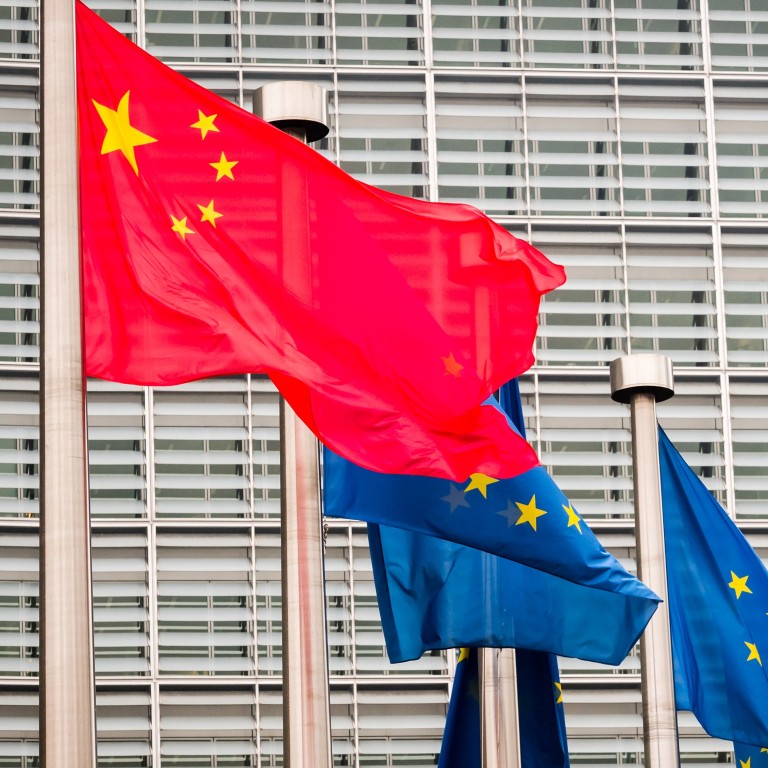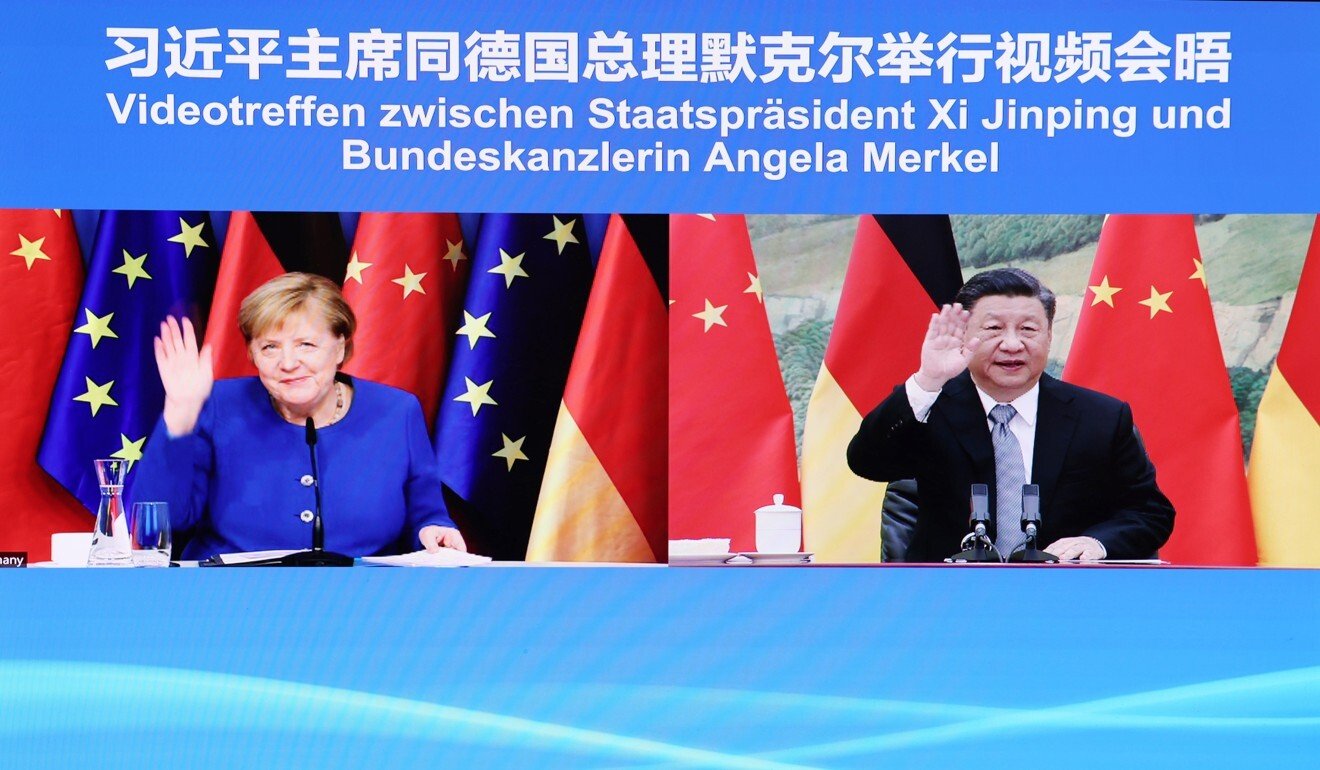
Chinese leader Xi Jinping continues EU engagement drive in talks with EU Council president
- President’s talks with Charles Michel follow Wednesday’s farewell to ‘old friend of China’ Angela Merkel
- Xi says it is no surprise that there are differences between the two sides but these should be resolved through dialogue
The Friday afternoon call took place amid speculation that Xi will not travel to Europe for the G20 leaders’ summit at the end of the month or for the COP26 climate talks in November, leaving no opportunity for face-to-face talks.
In his call with Michel, Xi said both China and the European Union are facing new challenges, but the two are comprehensive strategic partners and need to step up communication.
“China and Europe are different in their history, culture, social systems and development stages. It is not surprising that there is some competition and differences, but they should be resolved through dialogue and negotiation.
“China has always been sincere in developing China-EU relations, and at the same time, it will firmly safeguard its own sovereignty, security, and development interests,” Xi said according to state broadcaster CCTV.
“It is hoped that the European side will adhere to strategic autonomy, distinguish right from wrong, and work together with China to push forward China-EU cooperation”.
An EU official said that the leaders discussed Afghanistan, “the rise of cross-strait tensions”, China’s human rights record and Beijing’s sanctions on EU lawmakers and academics.
‘The time is now’: Xi calls on China to rally for common prosperity
“The situation in the South China Sea and the recent rise in cross-strait tensions are also matters of concern. The EU considers that sanctions imposed against European policymakers are unjustified and unacceptable,” said the official, adding that “the EU will continue to seek a more balanced economic relationship” with China.
They confirmed intentions to hold an EU-China summit, and “will also explore a meeting with all members of the European Council at a later stage”.

Michel welcomed China’s decision to stop funding new coal powered plants abroad, and “encouraged China to further step up its climate ambition ahead of COP26”.
Meanwhile, the EU’s top diplomat Josep Borrell discussed China with US Secretary of State Antony Blinken on Thursday, amid efforts to repair the transatlantic relationship following the Aukus debacle.
How China borrowed a page from the EU’s playbook to counter US sanctions
“As the United States is looking at the challenges we have to meet around the world to actually improve the lives of our own citizens, the first place we’re looking is Europe, the European Union, as our partner,” Blinken said.
The pair agreed to hold further talks on China in December.
The announcement has strengthened the resolve in some parts of the EU to re-engage with China after a rocky first six months of 2021 in which sanctions were exchanged and a bilateral investment deal effectively paralysed.
France in particular has ramped up its rhetoric about “strategic autonomy”, meaning that European countries should not be beholden to either the US or China.
In an interview with The New York Times this week, French Finance Minister Bruno Le Maire said: “The United States wants to confront China. The European Union wants to engage China.”
He also said the EU must be “independent from the United States, able to defend its own interests, whether economic or strategic interests”.
The bloc’s 27 national leaders gathered in Brdo, Slovenia last week for talks that were supposed to be about China, but the agenda was broadened at the last minute to include Aukus, Afghanistan and EU defence strategy.
One senior diplomat in attendance said that this was at the behest of France and that during the event “Macron majored on the fallout of Aukus and the need for a proper EU Indo-Pacific strategy”, as well as reinforcing the importance of strategic autonomy.
A second diplomat said that China was given “about 10 minutes” in the three-hour discussion, although other topics touched on China indirectly.
EU leaders discuss need to ‘rebalance’ relations with China
“It has always been so hard to get leaders’ attentions on the China question,” said Andrew Small, a senior transatlantic fellow with the German Marshall Fund’s Asia Programme, who added that Le Maire’s positions closely reflect those outlined by Macron earlier this year in an interview with the Atlantic Council and after the Nato Summit in June.
Beijing is expected to take advantage of the rift between Paris and Washington over Aukus, and work to draw France closer into its orbit.
“France will always be an ally for the United States, but the new reality is it has been excluded from the club,” said an official with knowledge of China-EU affairs.
Cui Hongjian, director of the Department for European Studies at the China Institute of International Studies, a think tank affiliated with the foreign ministry, said: “The US claiming that it has returned to the world stage doesn’t cover what it has done in the past. The EU should not be deluded by America’s deceptive posture.
“China and the EU should develop a relationship that is independent of our respective ties with the US.”
Additional reporting by Robert Delaney


